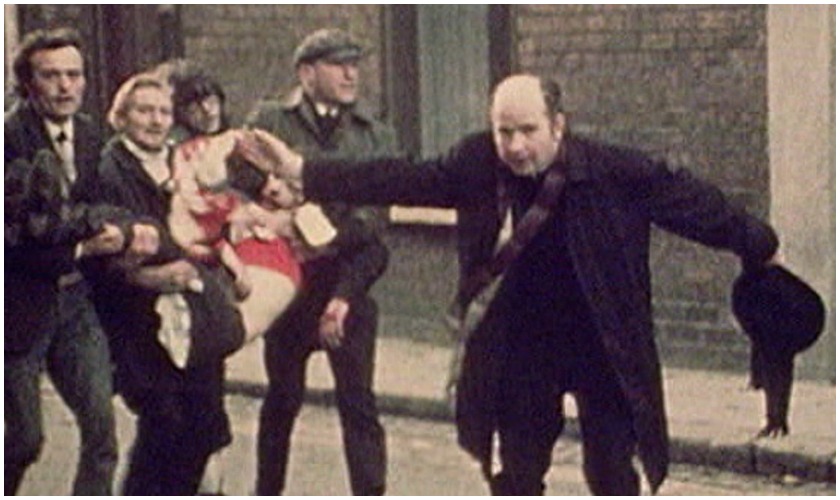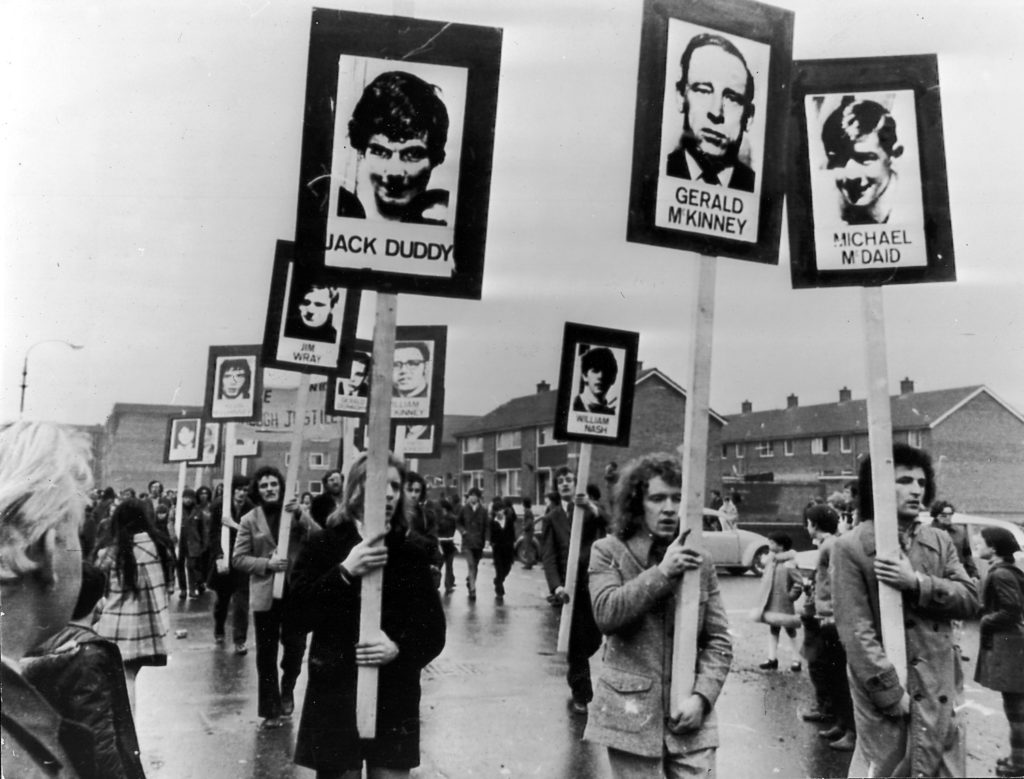THE DECISION not to prosecute 15 British soldiers over the deaths of 14 Irish civil rights protesters in 1972 has been upheld following an internal review.
A 12-year investigation into 'Bloody Sunday' found that the killing of 14 people in Derry in January, 1972 was "unjustified", and led to an apology by then-Prime Minister David Cameron in 2010.
However, a decision in March 2019 by Northern Ireland's Public Prosecution Service (PPS) stated that just one ex-British Soldier-- known only as 'Soldier F'-- would be prosecuted for the murder of two people and the attempted murder of four others, with 'insufficient evidence' to prosecute the 15 other soldiers.
The families of those who were killed and injured in the protests promised to challenge the decision, however an internal review decided to uphold the decision.
In an announcement today, the PPS confirmed the internal review showed there was not enough evidence to charge the soldiers with the range of crimes they were accused of, ranging from murder to attempted murder.
The new ruling does apply to Soldier F, however the prosecution that commended against him in 2019, relating to the murder of William McKinney and James Wray and the attempted murder of Joseph Friel, Muchael Quinn, Joe Mahon and Patrock O'Donnell, as well as a charge of "attempted murder of a person or persons unknown" will continue.
 Footage by Cyril Cave of the late Catholic Bishop of Derry Edward Daly waving a bloodied handkerchief became the iconic symbol of Bloody Sunday
Footage by Cyril Cave of the late Catholic Bishop of Derry Edward Daly waving a bloodied handkerchief became the iconic symbol of Bloody SundayThe PPS have communicated their decision to the families of those killed and injured in the massacre.
The new review was undertaken by PPS Senior Assistant Director Marianne O'Kane, who was not involved in the case previously. A statement by the PPS, released today, states:
"In line with the review process set out by the PPS Code for Prosecutors, O’Kane applied the Test for Prosecution afresh to the large volume of complex evidence and information considered by the original PPS decision-maker in order to reach new decisions. Detailed legal submissions received were also considered in the course of the reviews.
"She has taken new decisions in respect of each review request and concluded that the Test for Prosecution is not met on evidential grounds to prosecute any of the 15 soldiers in connection with the specific deaths or injuries sustained on 30th January 1972.
"All parties who requested a review received a detailed explanation of this outcome in writing earlier this morning. The 15 suspects concerned were also informed."
PPS Senior Assistant Director Marianne O'Kane, commenting on her decision, acknowledged the "deep disappoinment" which would be felt by the loved ones of those who were murdered.
"In March 2019, the PPS engaged extensively with the families of those killed and injured on Bloody Sunday to explain the reasons why the original decision-maker concluded that the available evidence did not meet the Test for Prosecution for all but one suspect reported.
"Given the importance of these decisions to all affected by them and the extensive public interest in the events of Bloody Sunday, the deep disappointment felt by many families at that time was wholly understandable.
 Families march for justice following the killing of 14 people by British soldiers in Derry in January, 1972(Getty Images)
Families march for justice following the killing of 14 people by British soldiers in Derry in January, 1972(Getty Images)"This was despite assurances received from the PPS that its decision-making had been conducted in an independent, fair and impartial manner. It was therefore also understandable that a number of the bereaved families and injured victims subsequently exercised their right to request a review of decisions relating to 15 of those suspects originally reported.
"I have concluded that the available evidence is insufficient to provide a reasonable prospect of conviction of any of the 15 soldiers who were the subjects of the reviews. Accordingly, the decisions not to prosecute these 15 individuals all stand.
"I know that today’s outcome will cause further upset to those who have pursued a long and determined journey for justice over almost five decades. I can only offer reassurance to all of the families and victims of Bloody Sunday, and the wider community, that my decisions were conducted wholly independently and impartially, and in accordance with the Code for Prosecutors."
Deputy First Minister Michelle O'Neill, reacting to the decision, issued a short statement on Twitter where she promised Sinn Féin would continue to support the families "in their pursuit of truth and justice".
"Today’s ruling on Bloody Sunday is hugely disappointing," she wrote.
Today’s ruling on Bloody Sunday is hugely disappointing
The families have been campaigning tirelessly for almost 50 years for justice
The denial of justice is unacceptable and must end
We will continue to support the Bloody Sunday families in their pursuit of truth and justice— Michelle O’Neill (@moneillsf) September 29, 2020
"The families have been campaigning tirelessly for almost 50 years for justice. The denial of justice is unacceptable and must end."

